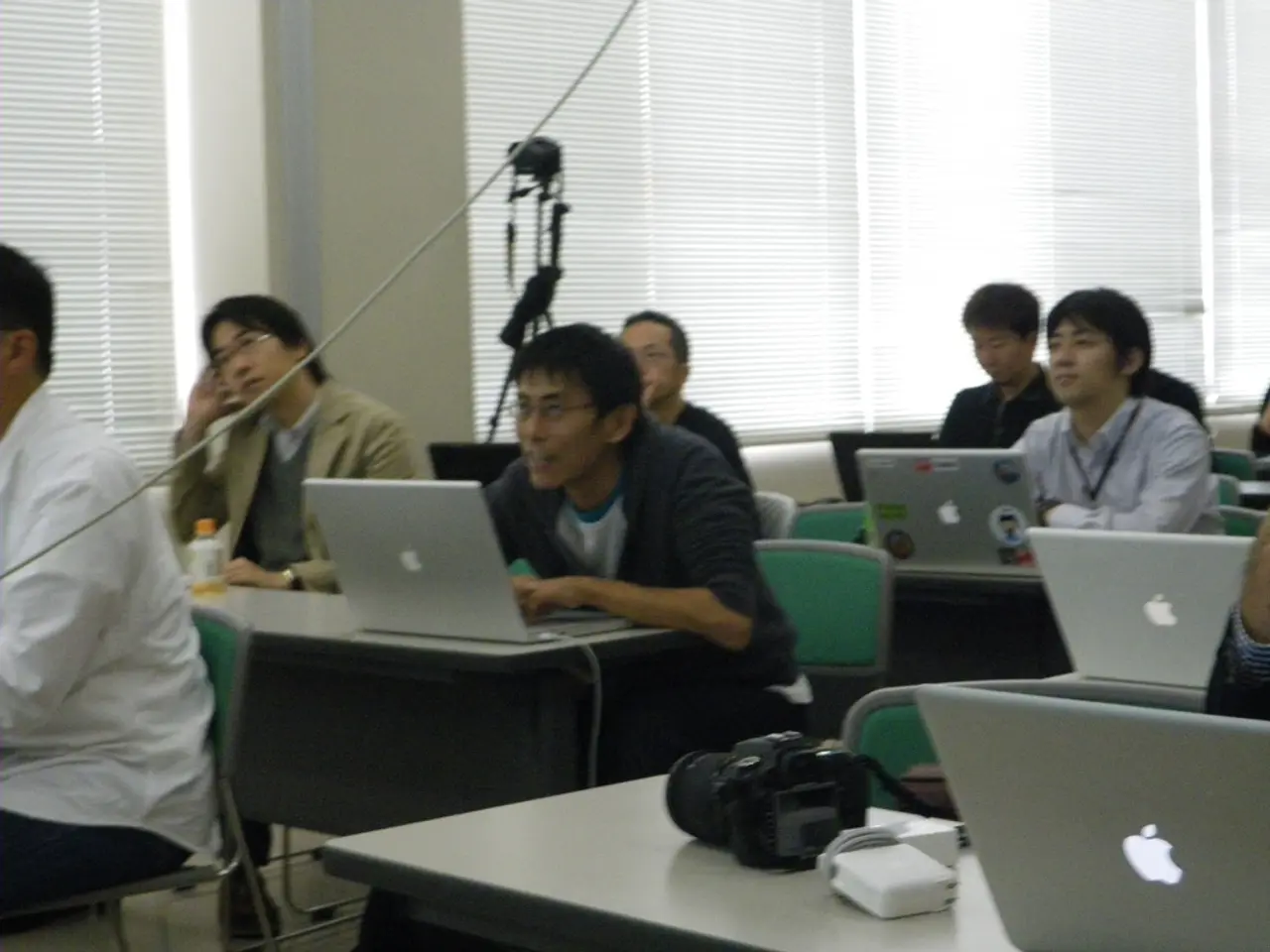As a Software Engineer, is it profitable to focus on developing skills in Augmented Reality (AR) and Virtual Reality (VR)?
In the ever-evolving world of technology, software engineers are increasingly turning their attention to Augmented Reality (AR) and Virtual Reality (VR) development. This exciting field offers a competitive edge in the job market, positioning engineers to be at the forefront of shaping the future of human-computer interaction.
The AR/VR market is projected to surpass $450 billion globally by 2030, making it an attractive field for software engineers [1]. However, the path to specializing in AR/VR is not without its challenges.
Hardware limitations, such as the limited field of view and processing power of AR devices, pose significant obstacles. Managing performance constraints while maintaining real-time rendering of complex 3D environments and accurate object tracking is a delicate balance that requires expert engineering [1].
Real-time rendering and interactions require high computational resources, necessitating the use of optimization techniques like foveated rendering, cloud-based edge computing, and AI-driven prediction algorithms to balance performance and power consumption [1].
User health and comfort are also critical concerns. Long-term use of AR and VR head-mounted displays can lead to physical discomforts, including dry eyes, headaches, and fatigue. Addressing these ergonomics and safety issues is crucial to ensuring user adoption and acceptance [2][4].
High production costs of AR/VR devices limit accessibility. Engineers must work towards creating cost-effective, lightweight, and energy-efficient hardware for widespread use [2]. Battery life is another constraint, necessitating innovations in energy efficiency and power management [1][2].
Precise spatial tracking and seamless interaction with virtual objects are complex to achieve due to sensor limitations and environmental variables. These factors can negatively impact user experience if not managed effectively [1].
Making AR/VR experiences accessible regardless of platform or user ability remains a challenge. WebAR and cross-platform solutions are improving this, but more work is needed [2]. Ethical and privacy concerns, such as protecting user data and building secure systems that safeguard privacy, are also vital considerations [2].
Collaboration and design efficiency are technically demanding, especially in industries like architecture and engineering where VR enables immersive design reviews and collaboration [3].
Despite these challenges, AR/VR offers a wealth of opportunities. The cross-industry applications of AR/VR offer diverse career paths for software engineers, from gaming and entertainment to healthcare and therapy, real estate and architecture, education and training, retail and e-commerce, manufacturing and automotive [1].
Tech giants like Apple, Meta, Google, and Microsoft are investing heavily in AR and VR technologies, further fuelling the demand for skilled AR/VR developers [1]. C#, C++, JavaScript knowledge is essential for AR/VR development, and familiarity with SDKs such as ARKit, ARCore, and WebXR is required [1].
Engineers skilled in Unity, Unreal Engine, WebXR, or ARKit/ARCore can command strong salaries due to the niche nature of AR/VR roles [1]. The tech industry is seeing a rise in software engineers exploring AR/VR specializations, making it an exciting time to join this rapidly evolving field.
References: [1] https://www.statista.com/topics/1178/augmented-reality-and-virtual-reality/ [2] https://www.forbes.com/sites/forbestechcouncil/2021/01/28/the-challenges-and-opportunities-of-ar-and-vr-development/?sh=6c6e787c642c [3] https://www.forbes.com/sites/forbestechcouncil/2021/04/08/the-impact-of-virtual-reality-on-the-future-of-design-and-engineering/?sh=6c6e787c642c [4] https://www.ncbi.nlm.nih.gov/pmc/articles/PMC8530725/
Technology plays a significant role in the development of Augmented Reality (AR) and Virtual Reality (VR), as software engineers turn their attention towards this field. The challenges in AR/VR development, such as hardware limitations, performance constraints, user health concerns, high production costs, and sensor limitations, require expert engineering skills to address [1][2][4]. Despite these challenges, the promising future of AR/VR offers a wealth of opportunities for software engineers, leading to diverse career paths across multiple industries like gaming, healthcare, real estate, education, and manufacturing [1].




